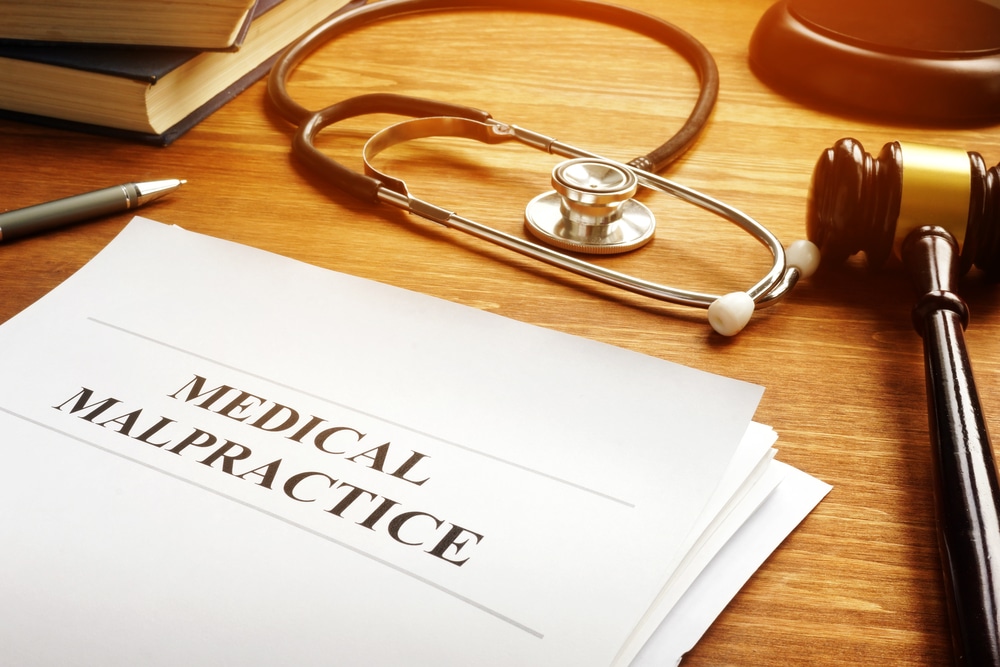From a young age, we’re taught to respect people in the medical field, dentists included. They need extensive education and experience in order to provide the care that you rely on. While 36% of Americans are afraid of the dentist, dental procedures are generally quite safe when performed by qualified, licensed professionals. However, dental malpractice can still occur.

Malpractice for a dentist can result from intentional or unintentional actions. Dental malpractice is not discussed as much as other forms of medical malpractice, yet, it can significantly impact your overall health and quality of living.
Here is what you need to know about what is considered malpractice for a dentist and some warning signs to watch out for at the dentist.
What Is Malpractice For A Dentist?
Dental malpractice is a type of medical malpractice. It can result from negligence, the dentist failing to uphold the acceptable standard of care, and providing treatment beyond what the patient consented to.
Malpractice can be difficult to prove, as it must be proven that the dentist failed to provide you with an acceptable standard of care and that your injury was caused by this failure. If you didn’t like the dentist or the results of the treatment, this does not necessarily mean that you were a victim of malpractice.
Examples Of Dental Malpractice

Disgruntled that your dentist told you you need a root canal? Annoyed that you weren’t given enough anesthesia at first? Many people don’t know what are mere annoyances and what constitutes malpractice. To avoid frivolous lawsuits, seek legal counsel. A lawyer will tell you whether or not you have a malpractice claim on your hands.
That said, here are some common examples of malpractice dentists can commit.
- Failure to diagnose a dental condition.
- Wrong diagnosis or treatment.
- Failure to detect oral disease or malformations.
- Failure to regularly update medical history.
- Failure to treat a dental condition.
- Delaying or denying treatment of dental problems.
- Negligent dental work.
- Ignoring patient wishes.
- Failure to obtain consent for treatment.
- Intentional misconduct.
- Improper administration of anesthesia.
- Unnecessary extraction of teeth.
- Improper use of dental tools.
- Injuring the patient.
- Wrongful death from dental procedures, such as oral surgery.
- And more.
Any type of medical malpractice, including from dentists, can cause pain and suffering to the patient. If you think you have a case, consult with an attorney.
What Is Needed For A Dental Malpractice Claim?
Just like in a medical malpractice claim, you must be able to prove the following points.
- Duty of care. This means that you were the dentist’s patient and they were ergo obligated to provide you with care. You cannot hold a dentist liable if you did not have a patient-practitioner relationship with them.
- Breach of duty. This means that the dentist did not do what other competent, similarly trained dentists would have done in similar situations. This includes both omissions and actions.
- Causation. The actions of the dentist must have been the cause of the harm you suffered.
- Damages. You must have suffered injury, loss of wages, or other damages as the result of your dentist’s actions.
As it can be difficult to determine whether or not you have a dental malpractice case on your hands, it is important that you seek legal counsel if you suspect you have been victim to this. They will be able to tell you whether or not you have a case.
Warning Signs To Watch Out For At The Dentist
Most dentists care deeply about the welfare of their patients. They want to ensure that they provide you with the best care possible. However, not all dentists are like this, and even the most experienced dentists can make mistakes.
There are some warning signs you can watch out for at the dentist that can indicate that you will likely be better off seeking treatment elsewhere.
- You aren’t asked for your medical history. Your dentist’s office should ask for this every time you come in.
- Your dentist works without an assistant or closes the door during treatment.
- The dentist rushes through the appointment.
- The technology in the office is not up-to-date.
- The dentist’s office doesn’t seem pristine and sterile.
- The dentist has a poor bedside manner.
- The dental tools aren’t sterile.
- Your dentist doesn’t personalize your treatment to you and your health records.
However, the dentist could have the cleanest office and the best bedside manner in the world, but dental anxiety can cause people to not want to go. If you suffer from dental anxiety, you can seek help from a therapist and ask your dentist about sedation.
Do You Think You Have A Malpractice Claim?
LeBaron & Jensen specializes in personal injury cases, including wrongful death and more. Contact us today if you think that you may have a malpractice claim and we will let you know whether or not you have a case on your hands.



